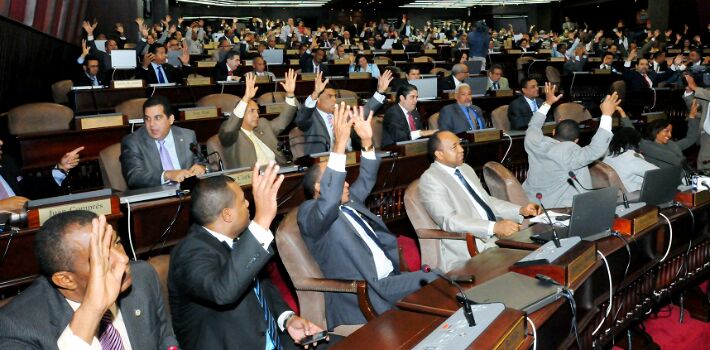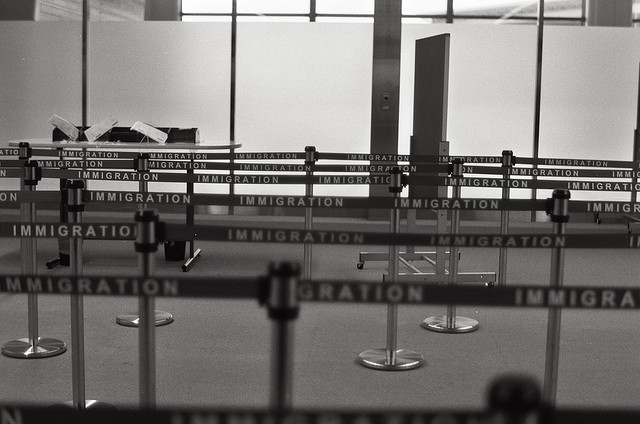
EspañolThe Dominican Republic has drawn one step closer to reforming its Constitution for the second time in five years. On Tuesday, May 2, the Chamber of Deputies approved a controversial bill that would permit the consecutive reelection of the president, causing dissent even within President Danilo Medina’s own Dominican Liberation Party (PLD).
According to the Dominican Republic’s Constitution, the executive has 15 days to summon a special assembly that will introduce the necessary amendments and put them up for a vote.
Under the current provisions, a president must wait four years before seeking reelection. This proposal, approved unanimously by the Dominican Senate last week, would allow Medina to run for president again in August 2016.
PLD officials chose to back the measure after opinion polls showed Medina had enough popular support — around 80 percent — to be reelected.
“The alliance that has been achieved to back this initiative is unprecedented in all the Dominican Republic’s history,” said Rubén Maldonado, spokesman for the PLD in the Chamber of Deputies.
Para que el país siga por camino del desarrollo yel bienestar de los ciudadanos tanto Rural como Urbano #SiAlaReforma pic.twitter.com/GcaNltsSO6
— Ing jose sanchez (@josanfamilia) May 20, 2015
“So the country can remain on the path toward growth and well-being for both rural and urban citizens: #YestoReform.”
Party Divisions
Medina and his PLD predecessor, former President Leonel Fernández, were initially at odds on the issue of constitutional reform, causing a rift within the ruling party.
On Tuesday, May 26, Fernández spoke out against the reform on national television and proposed that a popular referendum be instead held on the issue of consecutive reelection.
El ex presidente Fernandez se resiste a aceptar la realidad de que ya no tiene la antorcha
— Temístocles Montás (@temomontas) May 26, 2015
“Former President Fernández refuses to accept that he no longer leads the way.”
The PRD was able to resolve the matter behind closed doors, striking a deal that would allow Medina to seek reelection through congressional reform.
Before the bill was put to a vote in the lower house, the minority Social Christian Reformist Party (PRSC) proposed several changes, including a provision that would prevent the new rules on reelection from being changed until 2065.
While the proposals failed, the PRSC nevertheless voted in favor of permitting reelection that “follows the US model.”
“[The PRSC] has consistently reaffirmed its commitment to the principle of reelection, one that we have always considered to be highly democratic, as it places in the voter’s hands the ideal tool to reelect a good leader like our own, but that also places limits on terms so as to prevent certain parties or entities from excessively maintaining power through the indiscriminate use of public funds,” the PRSC commented in a statement.
Prior to the vote, the National Progressive Front party (FNP) had also introduced their own initiative to reform the Constitution via a referendum instead, but the Chamber ultimately rejected it as well.
As a result of the fallout, the FNP broke its 22-year-old alliance with the ruling PLD party. FNP Congressman Vinicio Castillo Semán announced he would file a complaint with the Constitutional Court to demand the body rule the reform unconstitutional. Furthermore, PLD Congressman Víctor Sánchez resigned from his party in opposition to the bill.
Congressman Nelson Arroyo of the Modern Revolutionary Party also complained that the move to change the rules on reelection did “not come from the will of the people,” and reported that he and his colleagues had been harassed by Medina’s ministers in order to secure their votes.
“If that wasn’t the case, the Public Works minister wouldn’t have summoned congressmen to his office; neither Mr. Gonzalo Castillo nor our former colleague Marino Collante would have called congressmen into his office to make indecent proposals,” Arroyo argued.
The opposition Broad Front for Popular Struggle (FALPO), unlike other socialist parties in the region, took to the streets of the capital Santo Domingo on Sunday to protest the reform on reelection.
“The ruling Dominican Liberation Party has dedicated its efforts to weakening the country’s institutions. It has transformed the state branches into one group’s private instrument, disregarding all legal reasoning that justify a state,” FALPO leader Fidel Santana said.
Alliance for Democracy Congresswoman Minou Tavárez Mirabal similarly warned that the constitutional reform “would be a blow to democracy, and a political and institutional setback.”
 Versión Español
Versión Español













